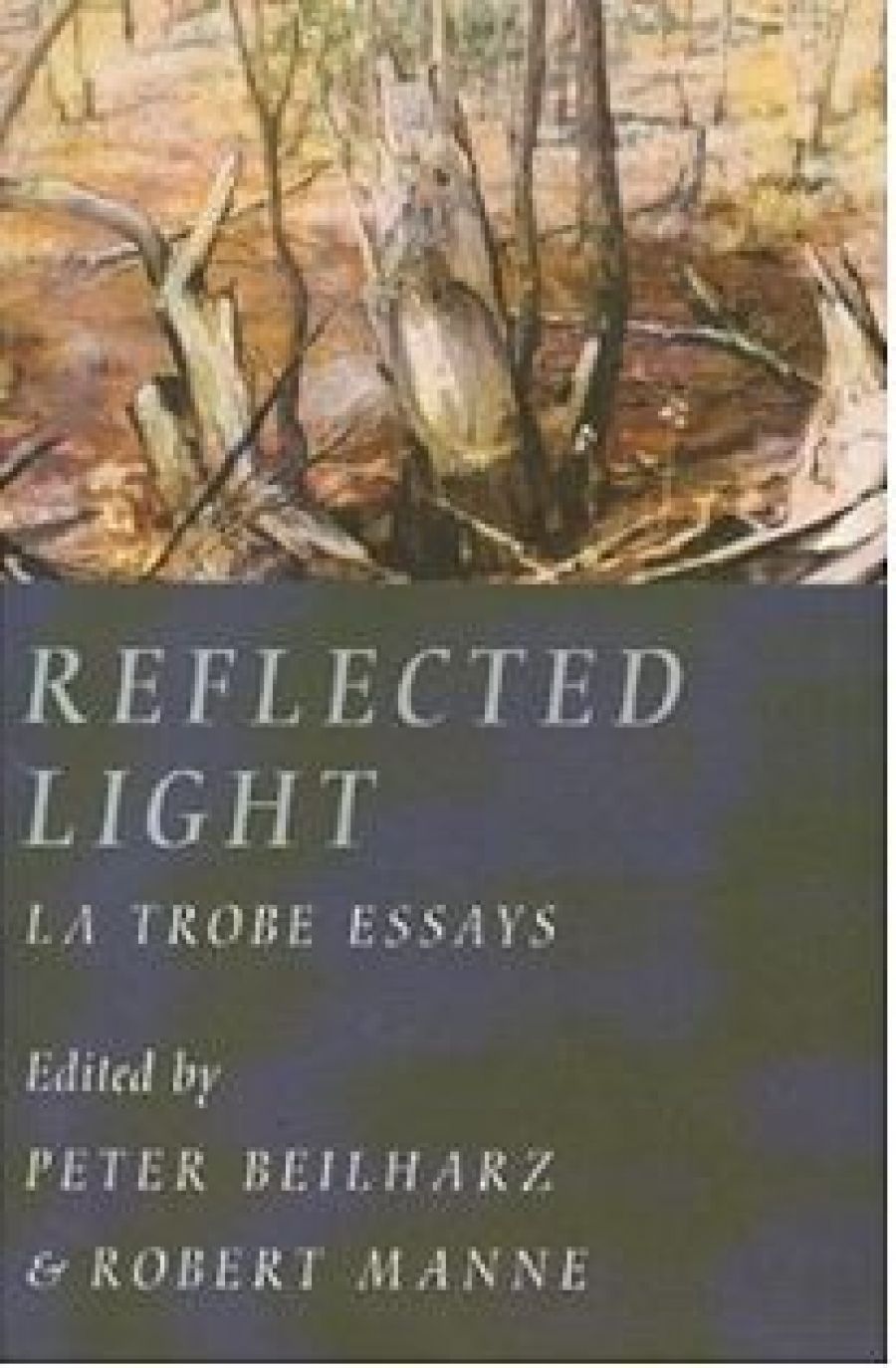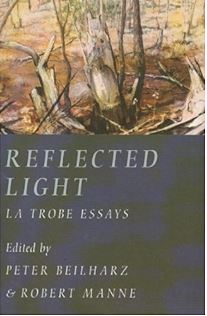
- Free Article: No
- Contents Category: Essay Collection
- Custom Article Title: Through the looking glass
- Review Article: Yes
- Article Title: Through the looking glass
- Online Only: No
- Custom Highlight Text:
In 1993, when he was editor of Quadrant, Robert Manne published a short essay, which is collected in his recent book Left Right Left (2005), called ‘On Political Correctness’. The essay rehearsed some familiar right-wing arguments against this ‘highly intolerant’ doctrine and the threat it posed to academic freedom. Manne’s political opinions have, of course, undergone a considerable realignment in the intervening years, and so has the national political landscape. While the term ‘political correctness’ has proved far too convenient to disappear completely, these days it is heard less often and is generally invoked with less heat. This is partly because, over the past decade or so, it has done its job of denigrating any leftish sounding opinion so effectively.
- Book 1 Title: Reflected Light
- Book 1 Subtitle: La Trobe essays
- Book 1 Biblio: Black Inc., $29.95, 343 pp
- Book 1 Cover Small (400 x 600):
- Book 1 Cover (800 x 1200):
Reflected Light prompts these thoughts less because of its content than the way Manne and his co-editor, Peter Beilharz, define its purpose. The book commemorates the for-tieth anniversary of La Trobe University. In their introduction, the editors present the volume as a celebration of the unique contribution to the nation’s public life that has been made by that institution’s humanities departments. But they also sound a note of caution. The humanities, they argue, are threatened on two fronts. The first threat can be put down to the prevailing spirit of the age: the Gradgrindism that decrees utility is the measure of all things. The idea of a broad education in the liberal arts has not fared well under a system that tends to favour disciplines that are obviously vocational in orientation. A more worrying phenomenon, they argue, is the current ideological assault upon the teaching of the humanities. ‘Over the past few years,’ write Beilharz and Manne, ‘an increasingly strident case … borrowed from neo-conservative intellectuals in the United States, has been mounted by certain commentators and politicians’ who perpetuate a caricature of an academy in which ‘an army of trivialising, politically correct, postmodern, anti-Western moral relativists has systematically colonised the liberal arts’.
Beilharz and Manne are certainly right in seeing this attack upon the humanities as ideologically driven – it is a part of the ongoing ‘culture wars’. I would argue, in fact, that the attack is being waged as an extension of the campaign against political correctness. At the very least, it is adopting the same strategy. The term ‘postmodern’ – which was always a woolly concept, and which is somewhat passé within the academy these days – is the rhetorical cudgel du jour. It is now appearing with monotonous regularity in the media as a vague term of abuse. In the process, the idea of postmodernism is being depicted in ways that range from the facile to the genuinely ignorant, and is being painted, rather hysterically, as a threat to Western civilisation’s perceived values.
In this context, Reflected Light positions itself carefully. The argument put forward by the editors in their introduction is almost the exact opposite to that proposed in Manne’s 1993 essay. The threat is no longer within; it is without. But there is a common thread in the fact that both arguments are framed as a defence of the university as a bastion of free inquiry. In this spirit, Reflected Light collects a wide variety of pieces from a wide range of perspectives and disciplines, all of which assume a general, non-academic readership. The contributors all have some connection with La Trobe University. Some are well known as writers and commentators, notably Inga Clendinnen and Judith Brett – both of whom contribute two essays – and, of course, Manne himself. Some other contributors are unlikely to be known to the general public, but acquit themselves well nonetheless.
The book is an attempt to refute the caricature of an institution overrun with feral relativists and theory-addled obscurantists. It achieves this by emphasising accessibility and diversity of opinion. On this count, Reflected Light is a success. It is an engaging collection. The contributions are diverse to the point of eclecticism. The subject matter ranges widely across Australian history and culture, and beyond. The essays vary in tone from serious analysis to lighter, even comical, pieces. Not all are equally appealing. Personally, I found that the contributions by John Carroll and Christine Dew crossed the line that separates provocative from merely silly. The quality of the writing, too, is variable. But there are many fine and thoughtful essays here, including Brett’s ‘On Pride’ and Marilyn Lake’s fascinating examination of Alfred Deakin’s attitude to the United States, an historical exploration that cannot fail to enrich understanding of current policies and debates. The essays have also been thoughtfully arranged so as to illuminate each other, a strategy that is particularly effective in the case of the four essays grouped under the heading ‘America & Australia’.
I do have a gripe. Reflected Light is pitched as a tribute to the interaction between the academy and the public sphere. Many of the essays it contains have been published previously. They have appeared in a wide range of contexts, and many of them have no doubt enriched the national conversation in a variety of ways. Yet the editors have not provided publication details. This does not necessarily detract from their appreciation. One does not need to know that Manne’s critique of the Howard government’s foreign policy was published earlier this year in The Monthly in order to reflect upon its arguments. Nor does one’s enjoyment of Clendinnen’s witty essay ‘The Gecko in the Machine’ depend upon the knowledge that it first appeared in ABR, in November 2004. But these facts are surely relevant to the book’s argument about the academy reaching beyond itself to enrich the wider culture.
In some cases, the context can be significant. Reading Carroll’s essay, ‘The Blessed Country’, for example, I had the feeling not only that had I heard it before but that some of his examples were dated. It transpires that ‘The Blessed Country’ was a contribution to the ‘Deakin Lectures’ series and was delivered by Carroll in May 2001. This timing – after the Sydney Olympics, but before the fear and loathing inspired by Tampa and 9/11 – casts an interesting shadow across the essay’s optimistic vision. It might also have been appropriate to acknowledge that the essay composed jointly by archeologists Tim Murray and Christine Williamson on ‘The Windschuttle Controversy’ – which has some claim to being the most important contribution to the volume, although it is also the most dryly written – was conceived as part of the response to Windschuttle’s revisionism in The Fabrication of Aboriginal History (2002), which led to the publication of Whitewash (2003). This should not have been difficult: Manne edited that book, too.
What you will not find in Reflected Light is a justification or explanation of the theoretical developments that have occurred across a variety of disciplines over the past few decades. This is a pity, because these ideas have had a profound influence and deserve to be taken seriously. Sure, there are some obscurantists out there. But the theories that have flourished in recent decades are less a threat to the humanities than an example of their doing what they are supposed to do, which is to think about culture and our place in the world. We should not allow these ideas to be marginalised by a lot of alarmist nonsense about the evils of postmodern relativism. Leela Gandhi, for example, is a respected post-colonial thinker, which in itself is prob-ably enough to get her tagged a ‘relativist’. But her essay on ‘Women and India’ is one of the finest things in Reflected Light. I would prefer her thoughtful, sensitive consideration of cultural difference to indignant thundering about ‘universal values’ any day.



Comments powered by CComment